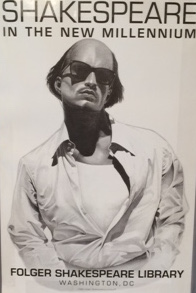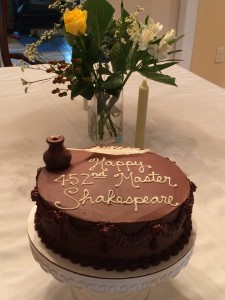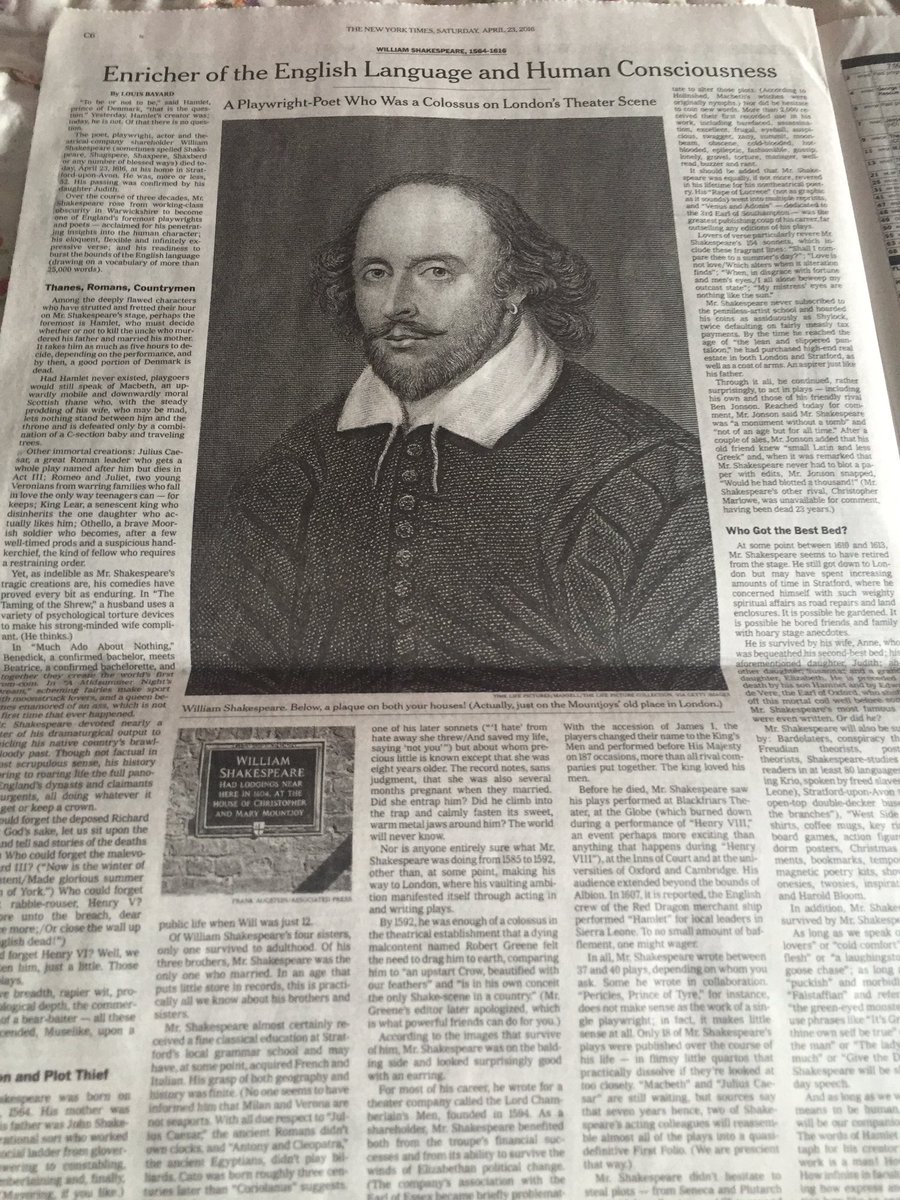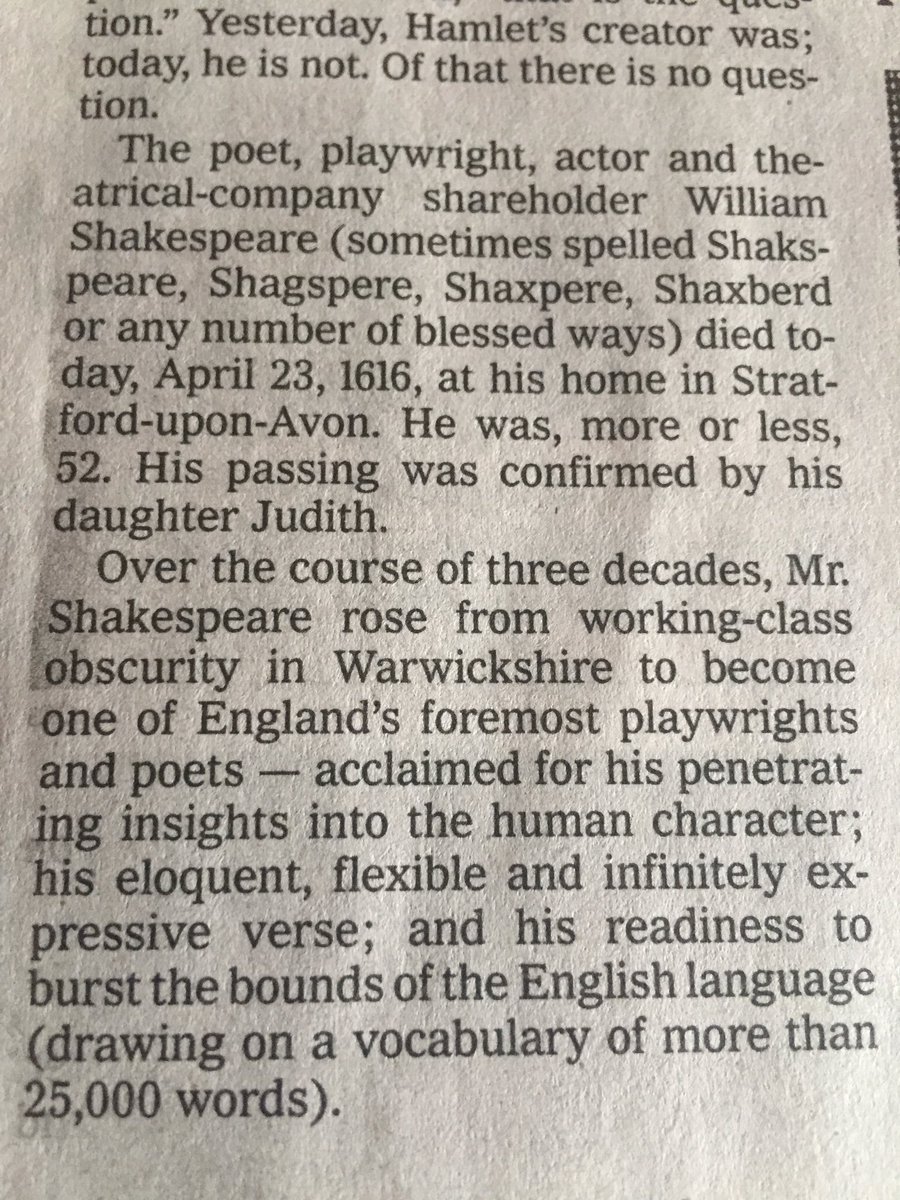
Of all the wild-eyed theories ever circulated about William Shakespeare, Bard of Avon, surely the most spectacular is that he smoked pot.
Who’d have thunk it?
Is it time to debunk it?
Let us examine the findings so far.
Jonathan O’Callaghan reports that a team of scientists from the University of Witwatersrand in South Africa studied 400-year-old pipes dug up in Stratford-on-Avon. Four of the pipes that came from the garden of Shakespeare’s house were found to contain traces of marijuana.
Marc Cugnon, writing for USA TODAY Network , says:
…in fact, Shakespeare’s Sonnet 76 may contain some references to drug use. Throughout its lines, Shakespeare refers to keeping invention in a ‘noted weed’ and to ‘new-found methods and compounds strange.’
When I first read “Much Ado About Nothing” many, many years ago I was completely bemused by the Lancelot Gobbo scenes. What did they mean? Why were they there? They seemed to have nothing whatever to do with the story of Beatrice and Benedick. If anyone had told me at the time that Shakespeare wrote those scenes while higher than a kite, I would have believed that person implicitly.
However, when I saw the magnificent Kenneth Branagh-Emma Thompson film version of “Much Ado About Nothing,” I realized for the first time that those Lancelot Gobbo scenes were funny. I even laughed. Very likely Shakespeare put in the comic relief for the “groundlings,” those who could afford only a copper to see the play and stood at the back of the theater through the entire performance. It goes back to the old truism: Shakespeare’s plays are meant to be acted, not read.
As to whether The Bard smoked pot and was high when he wrote, Edward Delman, writing for The Atlantic, affirms that so little is known about Shakespeare’s life it’s impossible to say whether he smoked pot or not.
And there’s always this to think about: perhaps he didn’t need to smoke weed to get high. Perhaps he simply got high on his own words—not at all a difficult thing to do. Consider the following (John of Gaunt’s speech from Richard II):
This royal throne of kings, this sceptred isle,
This earth of majesty, this seat of Mars,
This other Eden, demi-paradise,
This fortress built by Nature for herself
Against infection and the hand of war,
This happy breed of men, this little world,
This precious stone set in the silver sea,
Which serves it in the office of a wall,
Or as a moat defensive to a house,
Against the envy of less happier lands,
This blessed plot, this earth, this realm, this England….
And there we will leave it, Master Shakespeare, Bard of Avon, foremost poet and playwright in the English language. On this day, the 452nd anniversary of your birth, we salute you once again as being “not of an age but for all time.”


Happy Birthday, Shakespeare! I am glad you remembered to bake a cake, Diana!!
Darling—I cannot tell a lie. It was not I who baked the cake, but the pastry chef around the corner. She’s a marvel!
Thanks for making this a featured post. :)
Happy Birthday, Billy Boy! heh. You know, the greatest miracle isn’t how many different things he wrote or different kinds of things he wrote – it’s that considering he was writing with quill pen dipped in ink (made of heaven knows what) on handmade paper, it’s a wonder he could think and write at the same time at all! :) Sober, drunk, or stoned to the eyeballs, he did good.
Blushes and apologies—when I crossposted this to GOS, someone pointed out it was Dogberry and Verges in “Much Ado,” not Lancelot Gobbo, who was in “The Merchant of Venice.” The same comment applies—the scenes were much funnier when acted. I couldn’t understand them when I read them.
This, my friends, is why I’m not a reporter. I should have checked, but was so convinced I knew what I knew that I did not. I can only blush and apologize.
The NY Times tweeted out a Shakespeare “obituary” yesterday:



Oh, Jan, this is nuthin’ but GREAT! Thanks for sharing. What a fun read!